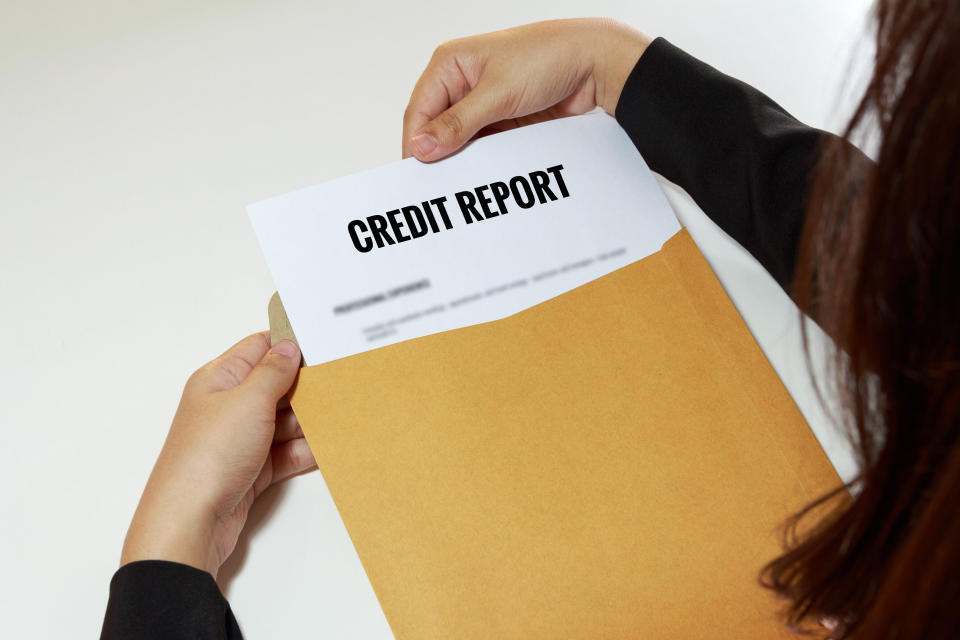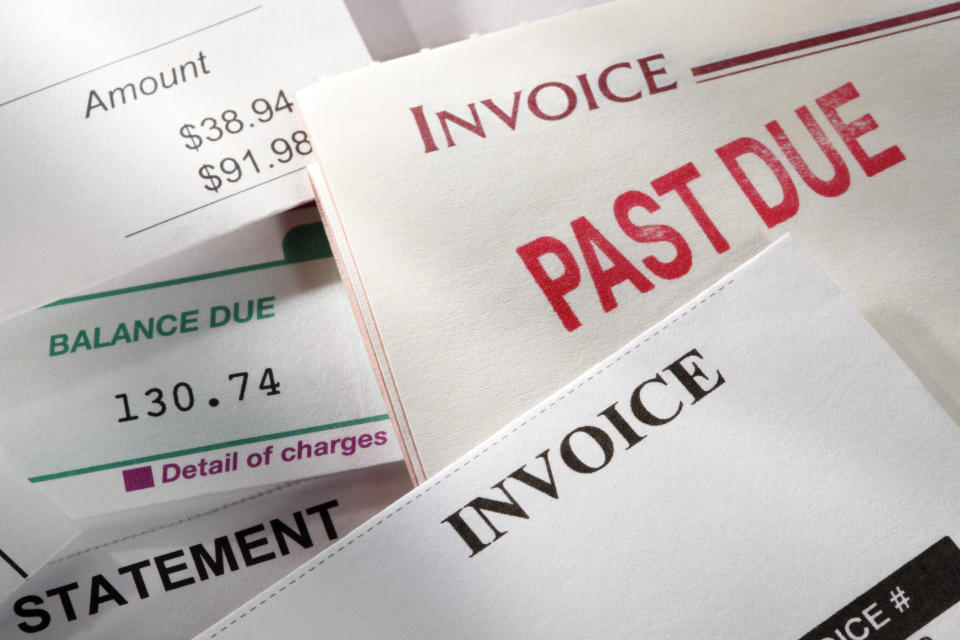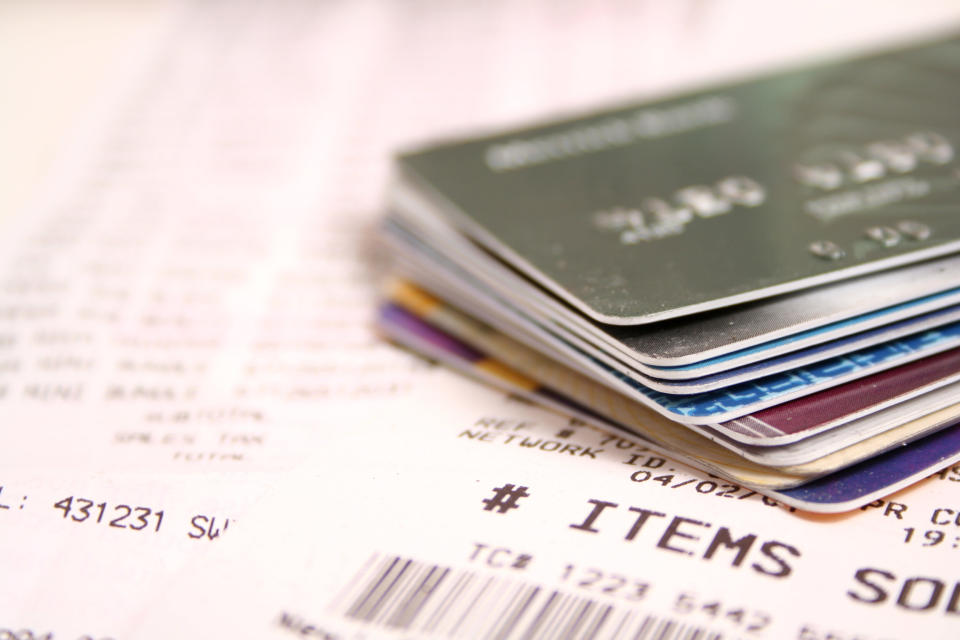How To Tell If You're The Target Of A Phone Scam
You’re listening to your voicemail messages, and an alarming recording begins:
Enforcement agencies to suspend your Social Security number on an immediate basis, as we have received suspicious trails of information in your name. The moment you receive this message, I need you to get back to me on my department division toll free number … verify the last four digits of your Social Security number when you call to better assist you, and if I don’t hear a call from you, we will have to issue an arrest warrant under your name.
Sound familiar? This exact phone message is one many people have received lately. It’s frightening, it’s confusing ― and it’s a scam.
Last year, the Federal Trade Commission received complaints from more than 35,000 people who reported this particular phone scam and lost a collective $10 million because of it. But it’s just one of many fraudulent phone calls you could receive. We spoke with the FTC about signs of a phone scam and what to do if you’re targeted.
Common Signs Of A Phone Scam
Phony calls from the Social Security Administration are what’s known as an “imposter scam,” according to Ian Barlow, the FTC’s “Do Not Call” program manager and staff attorney.
“The fraud that we get the most complaints about right now, by far, are imposter scams,” Barlow said. “That includes government imposters and fraudsters impersonating other businesses ― pretending to be Google or Microsoft ― but most especially fraudsters pretending to be the Social Security Administration or the IRS or other government agencies.”
Barlow said that every month, the FTC receives between 400,000 and 500,000 consumer complaints related to unwanted calls, with about 70% of those coming from robocalls or prerecorded messages. In addition to imposters, phone scams often include fake lotteries, prizes and sweepstakes, fraudulent debt reduction products and fraudulent medical and prescription calls.
To make it harder to spot an imposter, scammers will often employ a strategy called “spoofing,” which causes the caller ID on your phone to display a number belonging to a legitimate organization such as the government or your bank.
Barlow said the FTC has worked with a number of government agencies to put their phone numbers on a registry called the “Do Not Originate list.” This list is provided to telephone companies, instructing them to block any outgoing telephone call that displays one of these numbers as the caller ID (organizations reserve these numbers for incoming calls only).
Other times, scammers will spoof random, individual phone numbers and dial out a million calls, each with a unique caller ID number. That makes it nearly impossible to find the source or block the scammer from calling again.
Additionally, a current trend among phone scammers is prompting consumers to pay them using gift cards from iTunes, Google Play and Amazon, or other prepaid gift cards. In fact, the percentage of consumers who reported they paid scammers with a gift card rose 270% since 2015. “That is an immediate red flag,” Barlow said. “No legitimate business and no government agency is ever going to ask anyone to pay through those methods.”
Wire transfers are another common payment method among scammers. Barlow said any phone call requesting payment by wire transfer should give you immediate pause.
Watch Out For Legitimate But Abusive Phone Calls
Not all annoying phone calls from third parties are straight-up scams, according to Barlow, but they can still be abusive and violate the FTC’s Telemarketing Sales Rule.
For example, you might receive a call pitching solar panels for your home or satellite dishes for Dish Network. It might be a legitimate product, but it’s being sold in an abusive, illegal way.
“Under the FTC’s Telemarketing Sales Rule, it’s unlawful to place any sales call that delivers a prerecorded message, unless you have the consumer’s permission,” Barlow said, noting that permission must be given in writing. That goes for sales calls to numbers on the Do Not Call Registry as well. And if you do give permission to be contacted, it must be in the manner originally disclosed.
“So if you receive a call trying to sell you something, and you didn’t ask for that call, that’s a red flag that the company is operating unlawfully. And you never want to provide your personal information or payment information to a company that you know is violating the law,” Barlow said.
What To Do If You Think You’re Being Scammed Over The Phone
Fraudulent phone calls are so ubiquitous that becoming a target is a matter of when, not if. So what should you do if you receive a phone call that raises red flags?
Hang up immediately. If you receive a robocall or sales call and you’re on the Do Not Call Registry (sign up, if you haven’t already), hang up immediately. “That’s an illegal call and you don’t want to do business with somebody who’s calling you illegally,” Barlow said. If you receive a phone call from a caller ID number you don’t recognize, hang up. Even better, don’t pick up.
And if you’re not sure whether it’s really the Social Security Administration or your bank or any other legitimate business on the other end of the line, again, hang up. You can go online to find the number for the business that called you and call them back. If the call was legitimate, they’ll connect you with the right person.
Report it. It might seem like a futile effort, but you should report all fraudulent and illegal phone calls. “The more data we get, the better,” Barlow said, since reporting these calls helps the FTC target its law enforcement and identify trends. To report a phone scam, file a complaint online or call 1-877-FTC-HELP. If you receive a call from someone pretending to be from the IRS, you should also report it to the Treasury Inspector General for Tax Administration online or by calling 1-800-366-4484. For Social Security imposter scams, file a complaint with the Social Security Administration’s Inspector General.
Sign up for a call blocking service. Registering your number with the Do Not Call Registry can help eliminate unwanted sales calls, but let’s face it: Scammers aren’t going to be deterred by the law. For an added layer of protection, consider signing up for a call labeling and blocking solution. Barlow said hundreds are available for cellphones; simply visit your app store and check out the reviews to find a good option. For landlines, contact your service provider to find out what’s available.
Related Coverage
How To Stop Annoying Robo And Scam Calls Once And For All
Is Your Phone Recording Your Conversations? The Answer Might Surprise You.
Millennials Are Scammed Twice As Often As Seniors. Here's Why.
Also on HuffPost
Myth 1: You should stay away from credit ― period.

Those who avoid using credit are at risk of never developing a strong credit history, according to Eszylfie Taylor, president of Taylor Insurance and Financial Services in Pasadena, California. “This may present challenges when a consumer looks to make larger purchases like a car or home, as they have not exhibited the ability to borrow money and repay debts,” Taylor said.
But even if you don’t plan on borrowing money for a major purchase, you can still run into trouble when renting an apartment, opening a new utility account or even getting a job if you don’t have an established credit history.
You don’t have to put yourself in debt to build good credit. But you do need to have some skin in the game.“The simple truth is that consumers should look to establish multiple lines of credit and make payments consistently to build up their credit scores,” said Taylor.
Myth 2: Closing credit cards will raise your credit score.

According to Roslyn Lash, a financial counselor and the author of The 7 Fruits of Budgeting, this has to do with your credit utilization ratio. This ratio represents how much of your total available credit you’re actually using ― the lower your utilization, the better your score.
If you close a credit card, your available credit immediately drops.“If you have less credit but the same amount of debt, it could actually hurt your score,” Lash explained. In most cases, it’s better to cut up the card but keep the account open. Setting up account alerts can help you keep tabs on any activity or fraudulent charges.
Myth 3: Checking your own credit hurts your score.

Checking your own credit results in a “soft” inquiry, which doesn’t affect your score, according to Adrian Nazari, CEO and founder of free credit score site Credit Sesame. Other types of soft inquiries include when you’re pre-approved for a credit card in the mail or a prospective employer runs a credit check as part of the hiring process.
You can check your credit score as often as you want with no consequence. In fact, you should check it regularly; a sudden dip could indicate a problem or possible fraud.
Sites such as Credit Sesame and Credit Karma allow you to see your VantageScore 3.0 for free, though you should know this is usually not the score that lenders review. The most widely used score is your FICO score. And though there are services that charge a monthly fee to gain access to your FICO, you can often see it for free if you have a credit card with a major issuer such as Chase.
Myth 4: Making more money will increase your score.

It seems to make sense that the more you earn, the easier it should be for you to pay your debts, but “your income has nothing to do with your score,” Lash said. So feel free to celebrate that next raise, but know that your credit score will remain the same.
Myth 5: Credit reports and scores are the same things.
![<strong>Truth:</strong> Though it represents the same types of information, your <a href="https://www.huffpost.com/topic/credit-report">credit report</a> is not the same as your credit score.Think of a credit report as your financial report card and your credit score as the overall grade.<br /><br />“Your credit report is a record of your credit accounts … [including] your identifying information, a list of your credit accounts, any collection accounts you have, public records like bankruptcies and liens and any inquiries that have been made into your credit,” said Nazari.<br /><br />On the other hand, your credit score is a three-digit number that represents how likely you are to repay your debts based on the information contained in the report. Your score is “based on a complex algorithm that evaluates your relationship with credit over time,” explained Nazari. “Your credit score is not included on your credit report.”](https://s.yimg.com/ny/api/res/1.2/VggrQF_VOdzWL5.OO3PO.A--/YXBwaWQ9aGlnaGxhbmRlcjt3PTk2MA--/https://img.huffingtonpost.com/asset/5d0184d62500006813df9a9e.jpeg)
“Your credit report is a record of your credit accounts … [including] your identifying information, a list of your credit accounts, any collection accounts you have, public records like bankruptcies and liens and any inquiries that have been made into your credit,” said Nazari.
On the other hand, your credit score is a three-digit number that represents how likely you are to repay your debts based on the information contained in the report. Your score is “based on a complex algorithm that evaluates your relationship with credit over time,” explained Nazari. “Your credit score is not included on your credit report.”
Myth 6: Once delinquent accounts are paid off, your slate is wiped clean.

“Your credit report shows positive and negative accounts, including collection accounts, discharges, late payments and bankruptcies ― some of which can be on your report for up to 10 years,” explained Nazari.“That said, some collection agencies openly advertise that they will stop reporting a collection account once it’s paid off,” he added.
If that’s the case, keep an eye on your credit reports to make sure the delinquent account is removed. In most cases, however, you’ll have to live with the mark until it expires. Fortunately, its impact on your credit score should decrease with time, depending on the type of debt.
Myth 7: You can max out your cards as long as you pay the balance every month.

That’s because the date that credit card issuers report your balance to the credit bureaus is often not the same date as your payment due date.
“For a better credit score, keep your balance under 30 percent of your card’s total limit,” recommended Nazari. So if your card has a limit of $1,000, you should avoid carrying a balance of more than $300 at any time.
However, if you want to be able to use more of your available credit, you can pay down your balance before it gets reported to the bureaus. Usually, said Nazari, it’s the same as the statement closing date, but you should check with your card issuer to be sure.
Myth 8: You need a credit repair company to fix your bad credit.

“The good news is that one’s credit is ever changing and can be repaired if there have been some missteps in the past,” Taylor said. “In time, issues from the past will pass and credit can be restored ... no matter how bad it is today.”
Love HuffPost? Become a founding member of HuffPost Plus today.
This article originally appeared on HuffPost.

